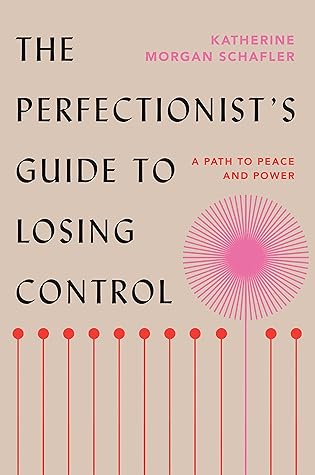More on this book
Community
Kindle Notes & Highlights
Read between
January 9 - January 19, 2024
lifesaving question
Over half the completed suicides in the United States are by firearms.
Research suggests that acknowledging and talking about suicide reduces suicidal ideation and can lead to an increased willingness to connect to support.[27]
Perfectionism is positively correlated with suicidality.
SPP is basically when you think others expect you to be perfect;
However, when you’re imposing perfectionistic standards on yourself because you think others expect perfection from you, you may be more vulnerable to humiliation and shame
you’re super productive or you’re a bumbling slob;
Adaptive perfectionists learn to build the habit of “ish” thinking.
They learn to choose presence over absence, power over control, and connection over isolation (the second half of this book is designed to offer specific strategies and tools involved in that learning). Adaptive perfectionists also learn how to stop making the number one mistake perfectionists make, which is to respond to missteps with self-punishment.
which helped her to feel that she was holding herself accountable.
What’s the difference between your best and perfect?
Punishment doesn’t work. When you punish someone, that person doesn’t learn how to change; they learn how to avoid the source of the punishment.
punishments are demoralizing.
Taking accountability involves openly recognizing how your behavior impacted everyone involved, acknowledging that you could’ve made a different choice, apologizing to those who were harmed, doing what you can to fix the problem, making a pledge to improve, and creating a plan to uphold that improvement.[4]
When we feel desperate and out of touch with power, we grasp onto punishment to feel in control.
focuses her energy on unproductive, circuitous thoughts
When she most needs love and support, she pushes everyone away with out-of-line behavior and social withdrawal.
Critical and negative self-talk.
How do you broaden your thought-action repertoire? With self-compassion.
You can’t heal or grow without self-compassion.
blame the world for being too bureaucratic.
blame others for being mediocre.
As your pain grows, at some point your primary goal shifts from growth to pain avoidance. Instead of being motivated to practice habits that support your goals, you become motivated to practice habits that support numbing your pain.
Feeling good gives you energy; feeling bad drains your energy.
Guilt says, I’m sorry about what I did. Shame says, I’m sorry about who I am.
a choice you can enact in any moment,
“You know better than this, what do you need that you’re not getting?”
Your problem is that you’re not being your full self.
Procrastinator perfectionists plan to make a plan about learning how to best make a plan.
Beyond helping us emotionally process the evolution of our lives, celebrating also boosts gratitude because we’re acknowledging joy for what’s happening. Everyone knows that increasing your gratitude makes you happier, but celebrating also increases our happiness because it gives us an opportunity to acknowledge all the people who have helped us and continue to help us along the way. The reinforcement of support and connection is a meaningful and often overlooked component of celebration.
You can enjoy a peaceful and private moment of celebration by cooking a nourishing meal for yourself. You can take a celebratory walk with a friend. You can throw a loud-ass backyard barbeque, swim in the ocean, wear red lipstick, go to a real-life movie theater, or use the fancy thing you were saving. As the saying goes, “Don’t save anything for a special occasion; being alive is the special occasion.”
“What are my instincts telling me about this?”
you first need to recognize that you’re hurting.
Paradoxically, giving yourself permission to feel your pain is what alleviates your pain.
Kindness is simply I’ve decided to be good to you.
Embracing our common humanity is understanding that we all encounter pain, we all get lost, we all have drama in our families—we
at some point, they’re all bound to fall short.
The better question is “What else do I also feel?”
First, the control tactics (overachieving, people-pleasing, etc.) that gave them a false sense of power as children are recognized as illusory.
The second thing clients come to acknowledge is that their desire was never to be perfect; it was only to be loved.
Trying to change your thoughts one by one is how you exert control; it takes a lot of energy to control your thoughts because you have to monitor and manage each thought as it enters your mind.
The most powerful perspective shift you could ever make is understanding that you’re already whole and perfect.


